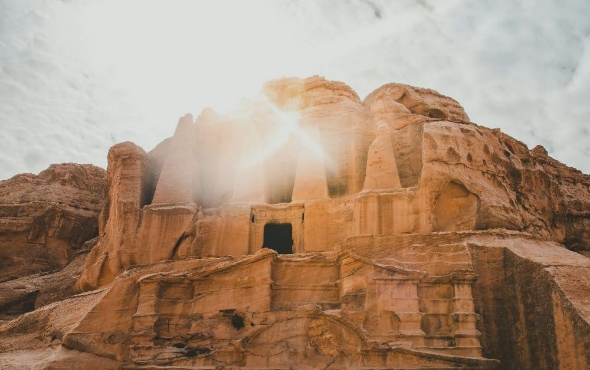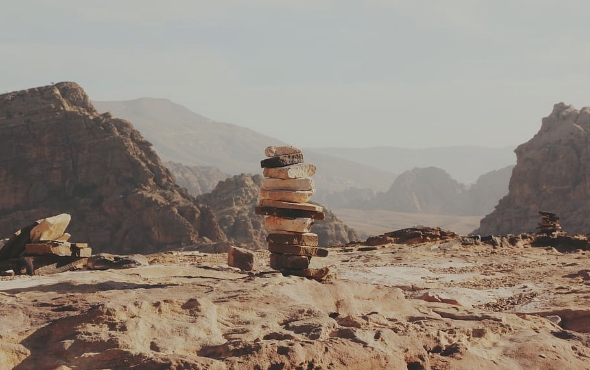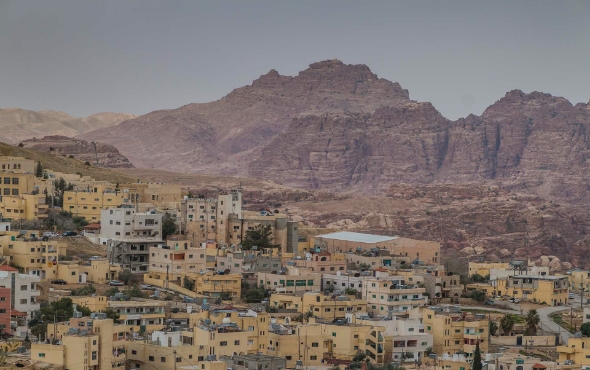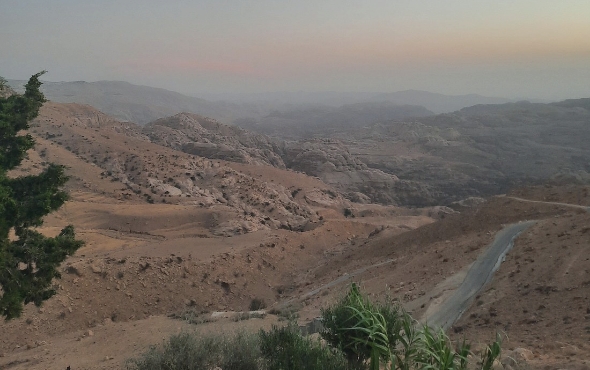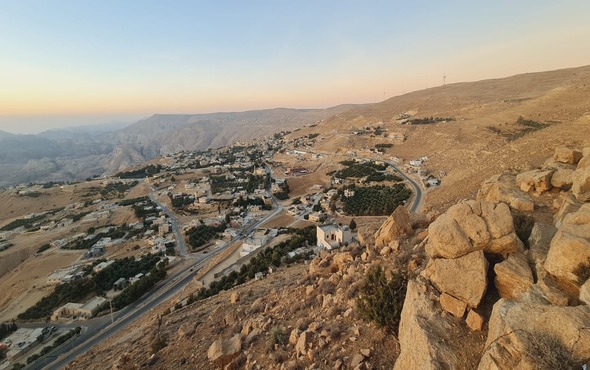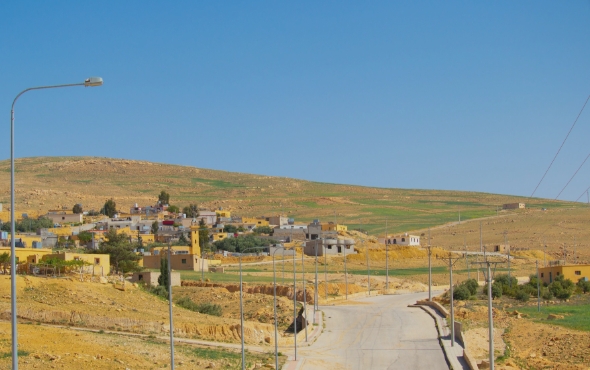One of the best known groups from Jordan’s ethnic groups is the Bedouin. As they are known in Arabic, the Bedu, or “desert dwellers,” endure the desert and have learned to survive its unforgiving climate. It is difficult to count Bedouins, but it is generally known that the majority of Jordan’s population is of Bedouin origin.
Local Communities Map
The Culture
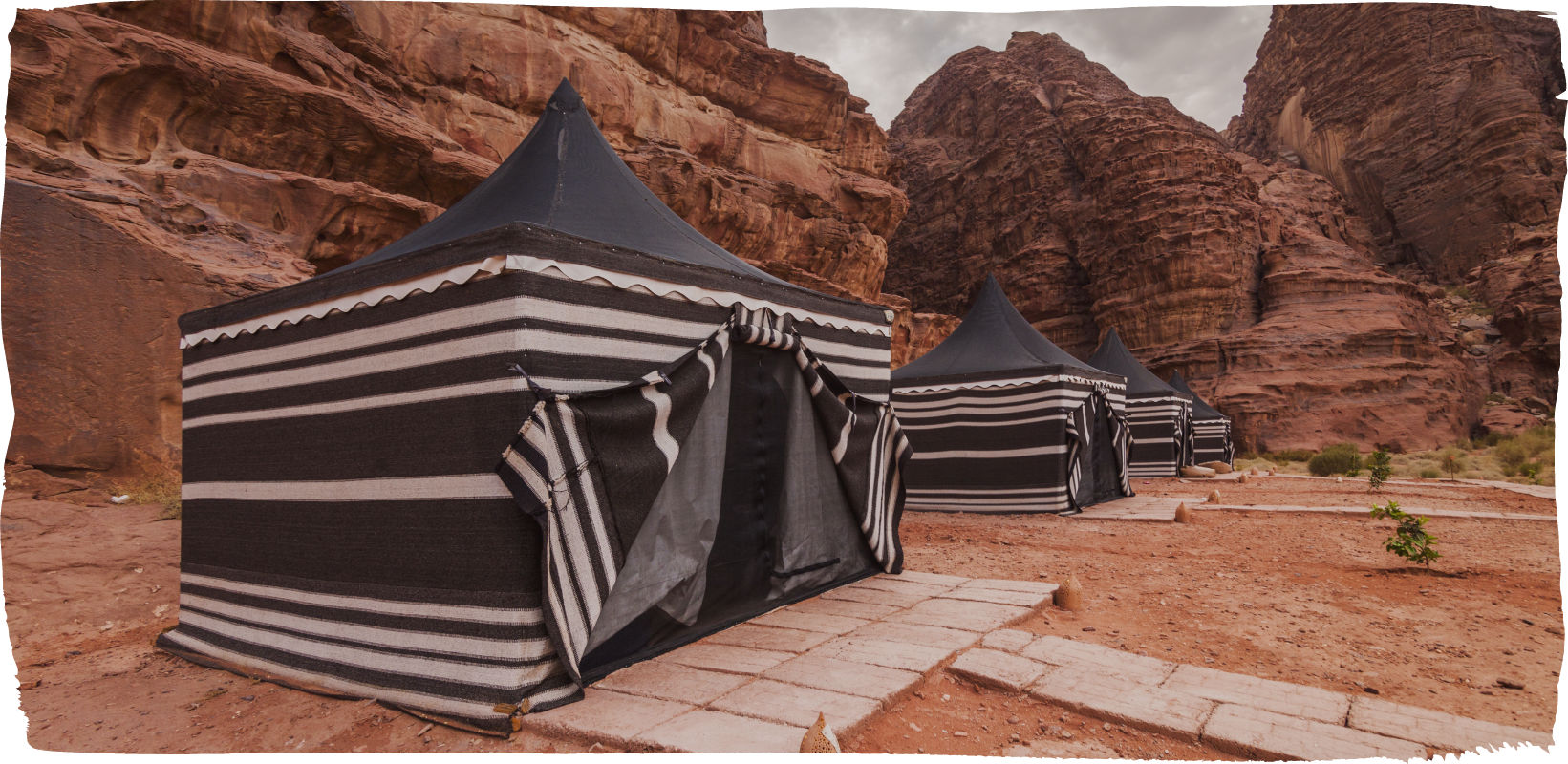
The Bedouins are the nomadic inhabitants of the desert, living by herding camels and livestock as they move from place to place in search of water and pasture. Their communities are characterized by distinctive black hair tents, known as "Bayt al-Sha'ar," or tents of hair. Read More...
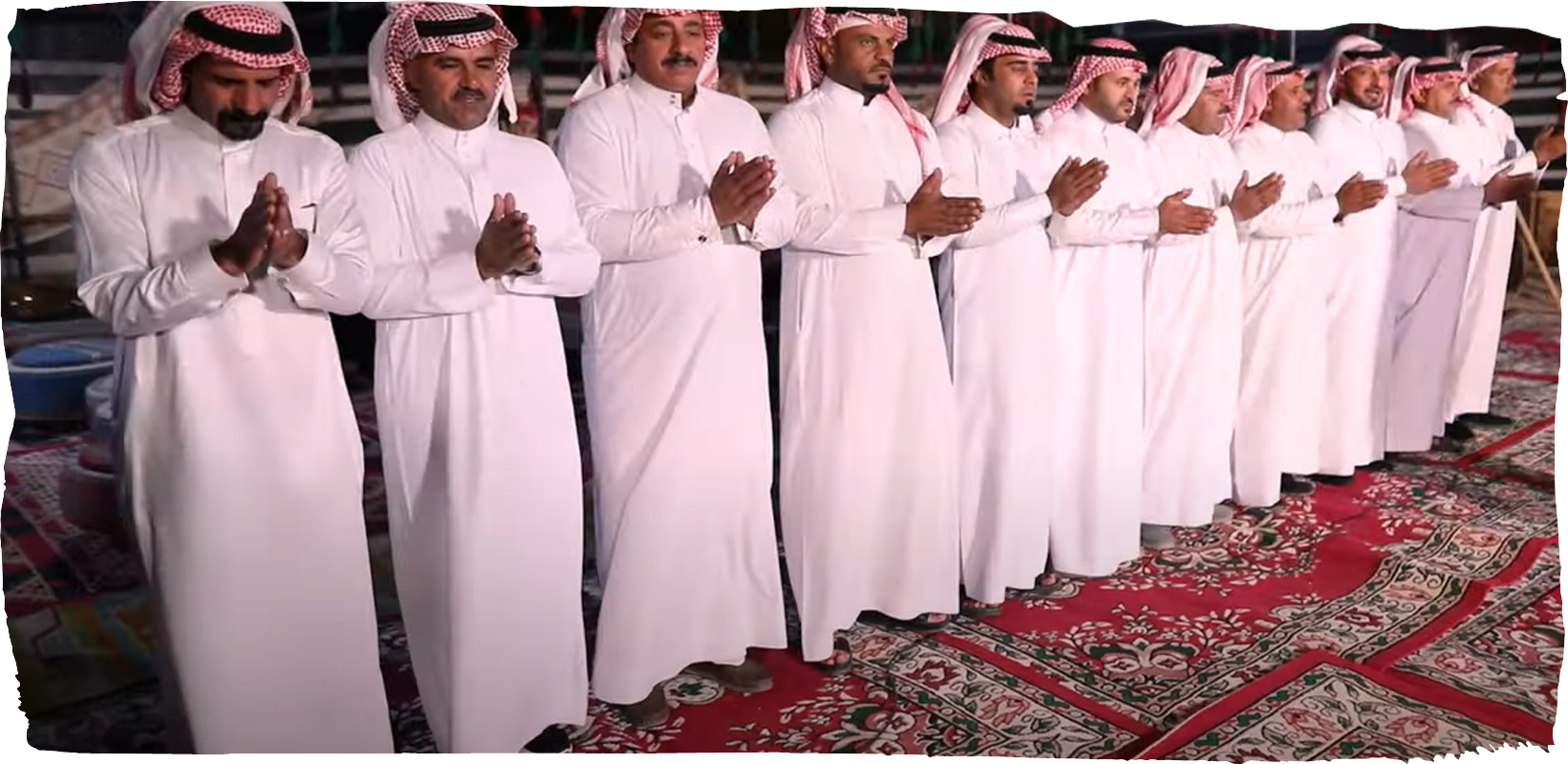
Practised across many areas of Jordan, As-Samer consists mainly of dancing and singing and is performed on various occasions, most commonly during marriage ceremonies. Practitioners range from young to older individuals, with children being encouraged to take part during performances. Read More...
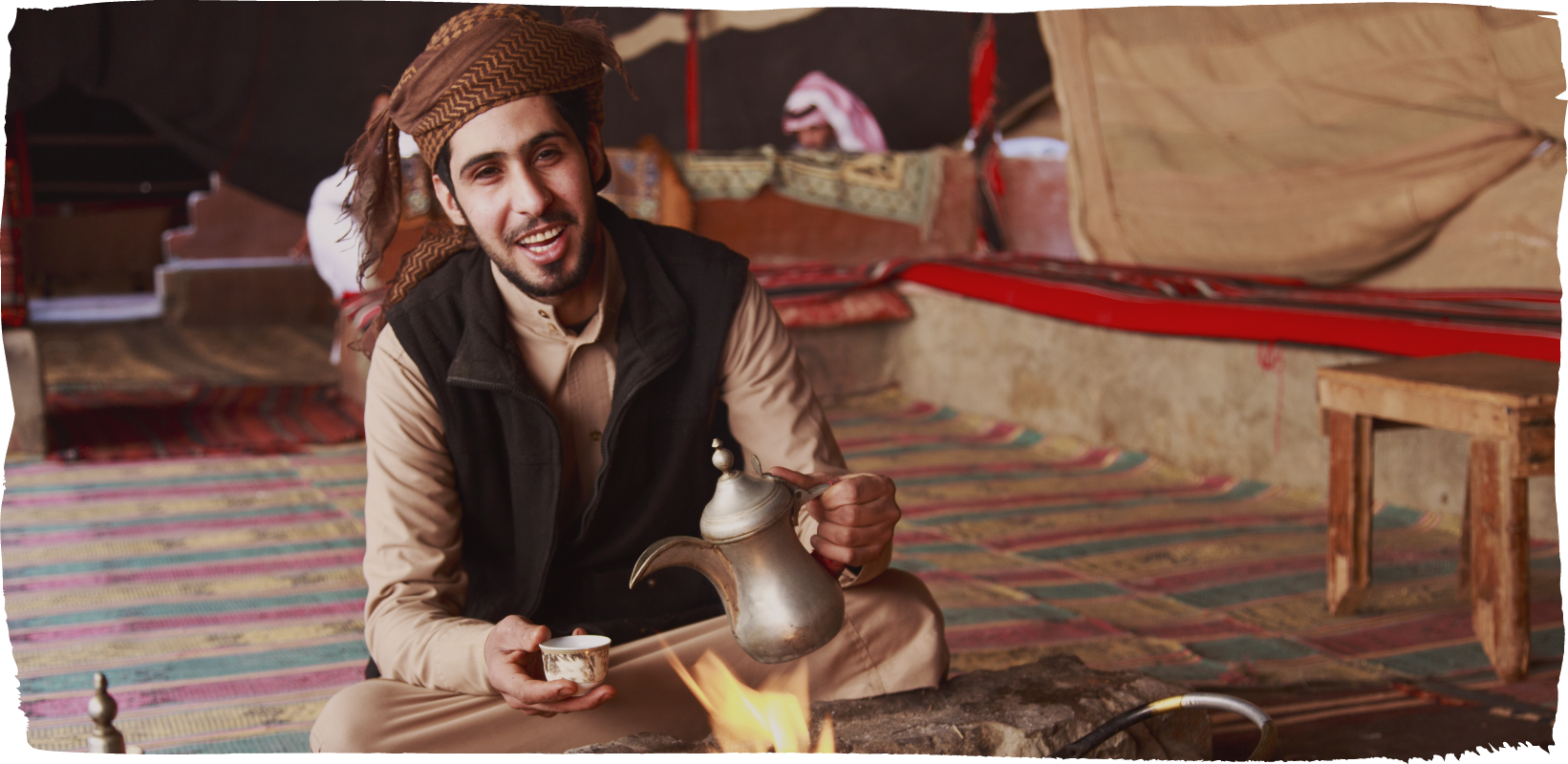
For the Bedouins, coffee is the key to conversation and a signal to begin speaking. It also serves as a means of welcoming guests and conveying the values of generosity and hospitality. When serving coffee, it should first be offered to the guests or the elders.
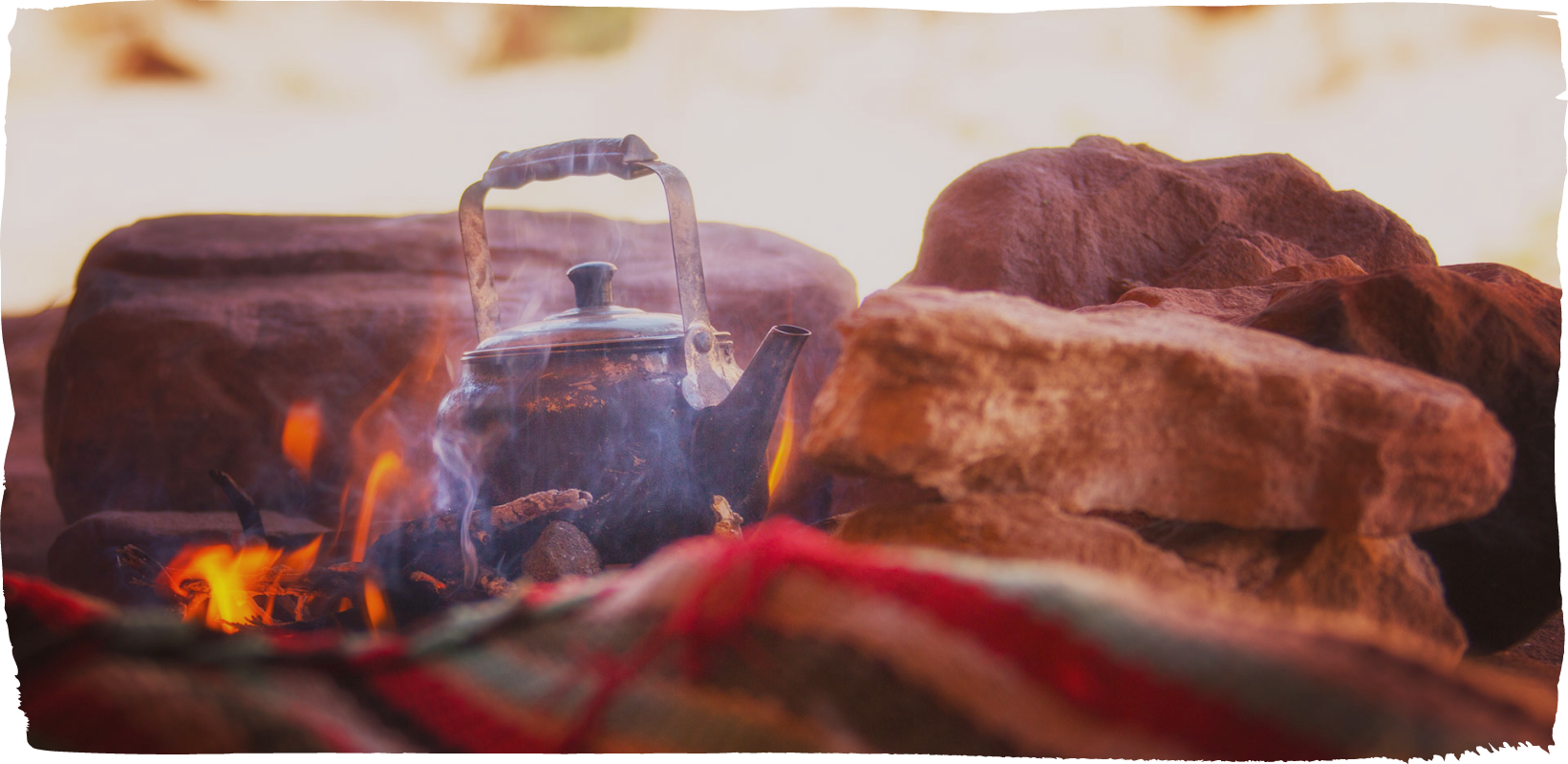
The Bedouin cup of tea is more than just a drink; it is a profound symbol of ancestral heritage. In every sip, it embraces a story of hospitality and welcome, where Bedouin generosity is evident in every encounter.
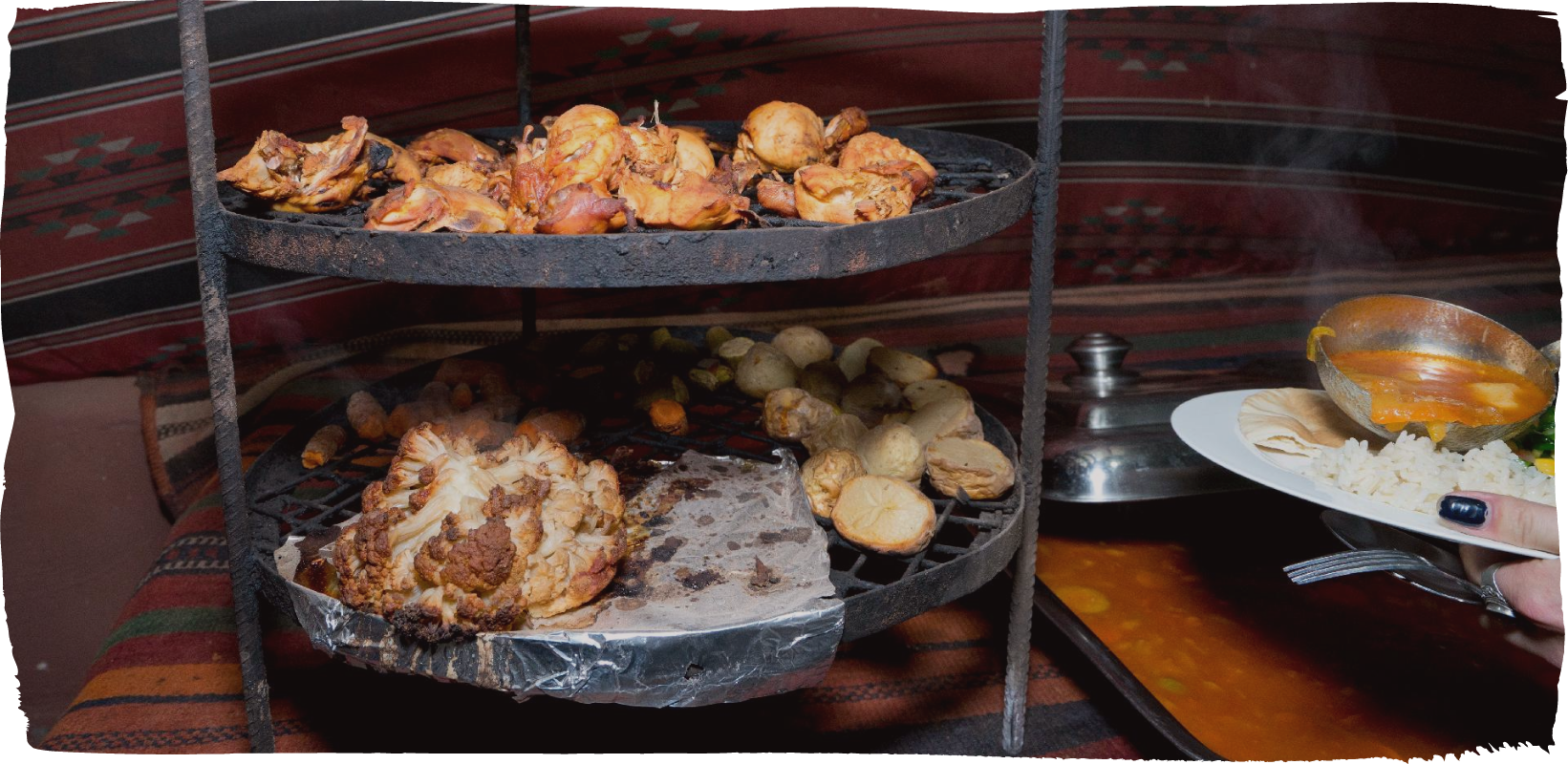
Bedouin food is a celebration of flavors and tradition, and every meal is a communal feast. Trying zarb is a must a mouthwatering dish of meat and vegetables slow-cooked underground.



